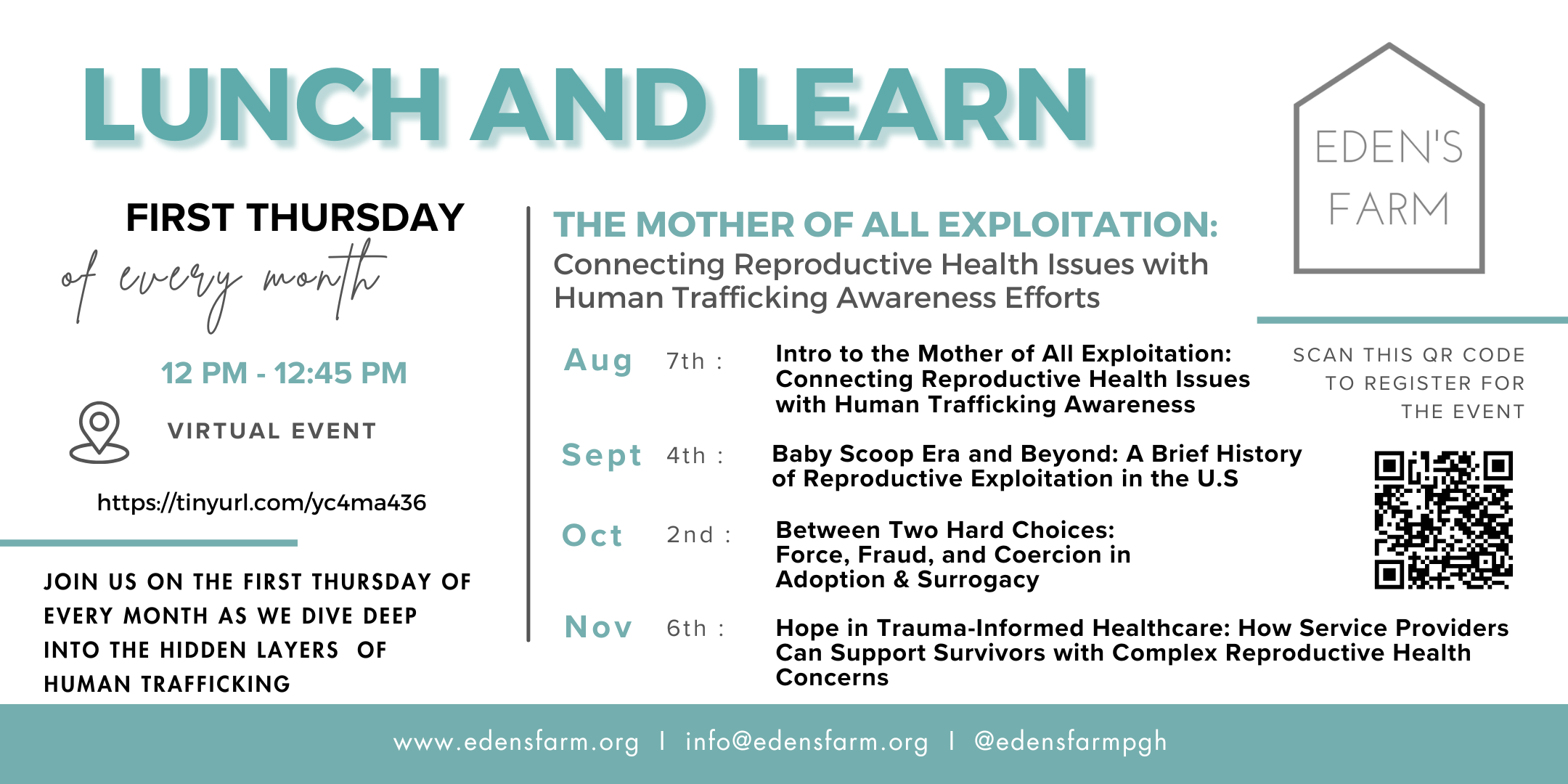Human Trafficking Education
At Eden’s Farm, we believe that education is one of the most powerful tools in the fight against human trafficking. Our Human Trafficking Education page is a hub for learning—designed for community members, service providers, and students who want to deepen their understanding and take informed action.
Explore our upcoming trainings, access survivor-centered resources, and engage in conversations that challenge harmful myths and illuminate the lived realities of exploitation.
Upcoming Training
Lunch & Learn Series
When: First Thursday of Every Month
Time: 12:00 PM – 12:45 PM (EST)
Where: Virtual (Zoom link provided upon registration)
Description:
Join Eden’s Farm for our Lunch & Learn series—brief, impactful sessions created to unpack the complexities of human trafficking through a trauma-informed, survivor-centered lens. Each month, we take a deeper dive into topics such as the psychology behind fast money, trauma bonds, healing, typology, and intersectionality.
The Mother of All Exploitation: Connecting Reproductive Health Issues with Human Trafficking Awareness Efforts
Next Dates:
Aug 7th, 2025
Intro to the Mother of All Exploitation: Connecting Reproductive Health Issues with Human Trafficking AwarenessSept 4th, 2025
Baby Scoop Era and Beyond: A Brief History of Reproductive Exploitation in the U.SOct 2nd, 2025
Between Two Hard Choices: Force, Fraud, and Coercion in Adoption & SurrogacyNov 6th, 2025
Hope in Trauma-Informed Healthcare: How Service Providers Can Support Survivors with Complex Reproductive Health Concerns
What to Expect:
30–45 minute virtual discussion
Survivor-informed insights
Interactive Q&A
Designed for all levels of understanding


